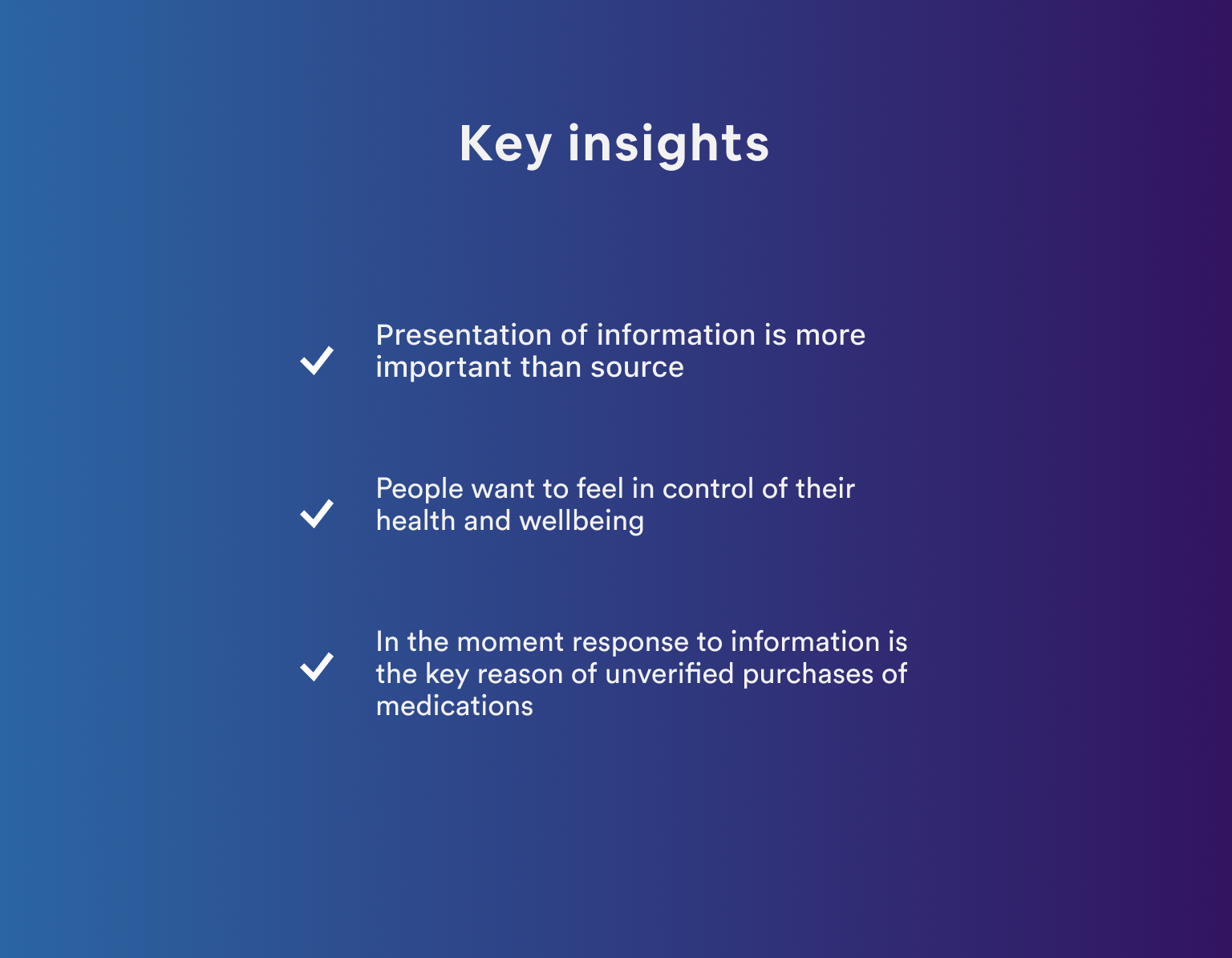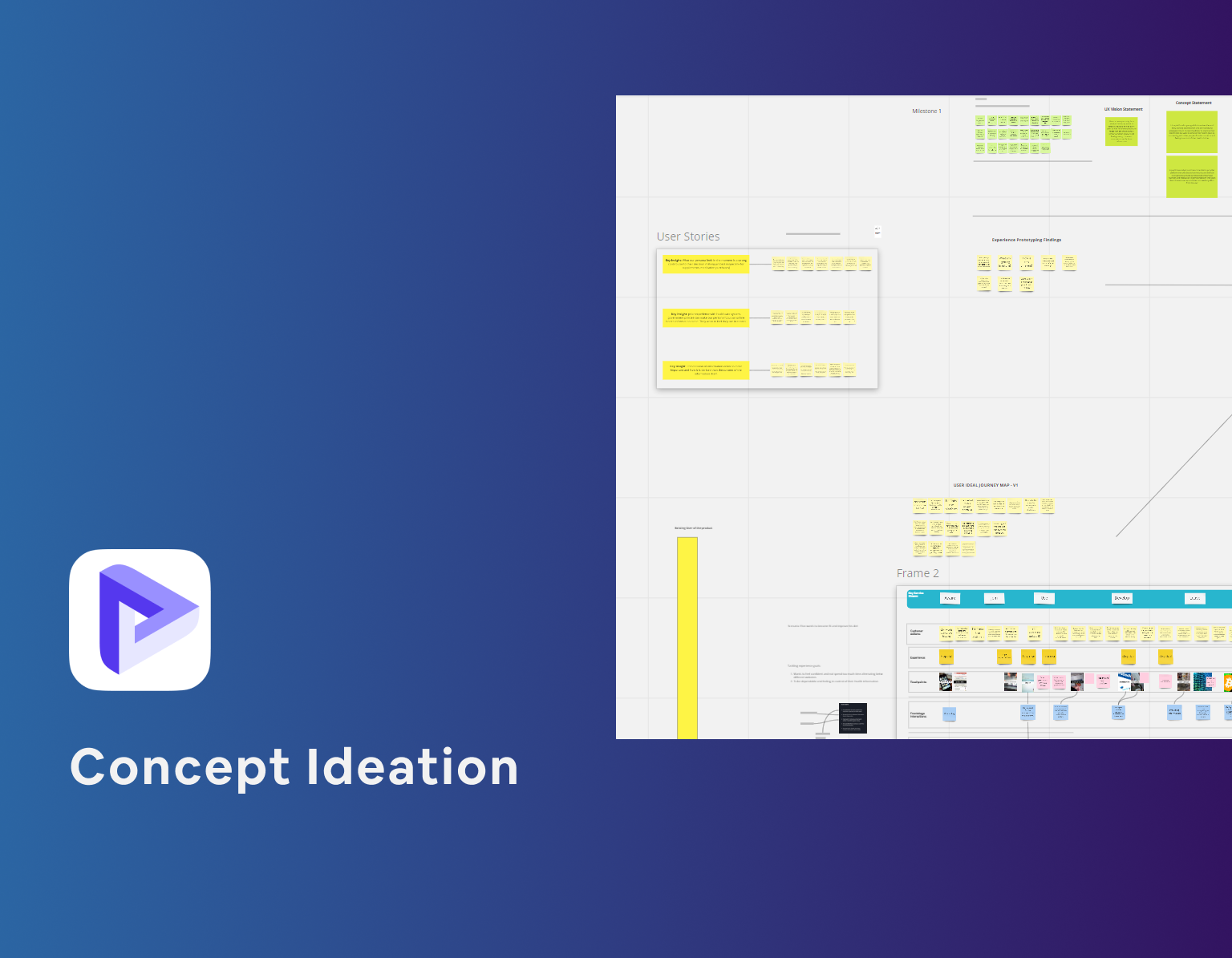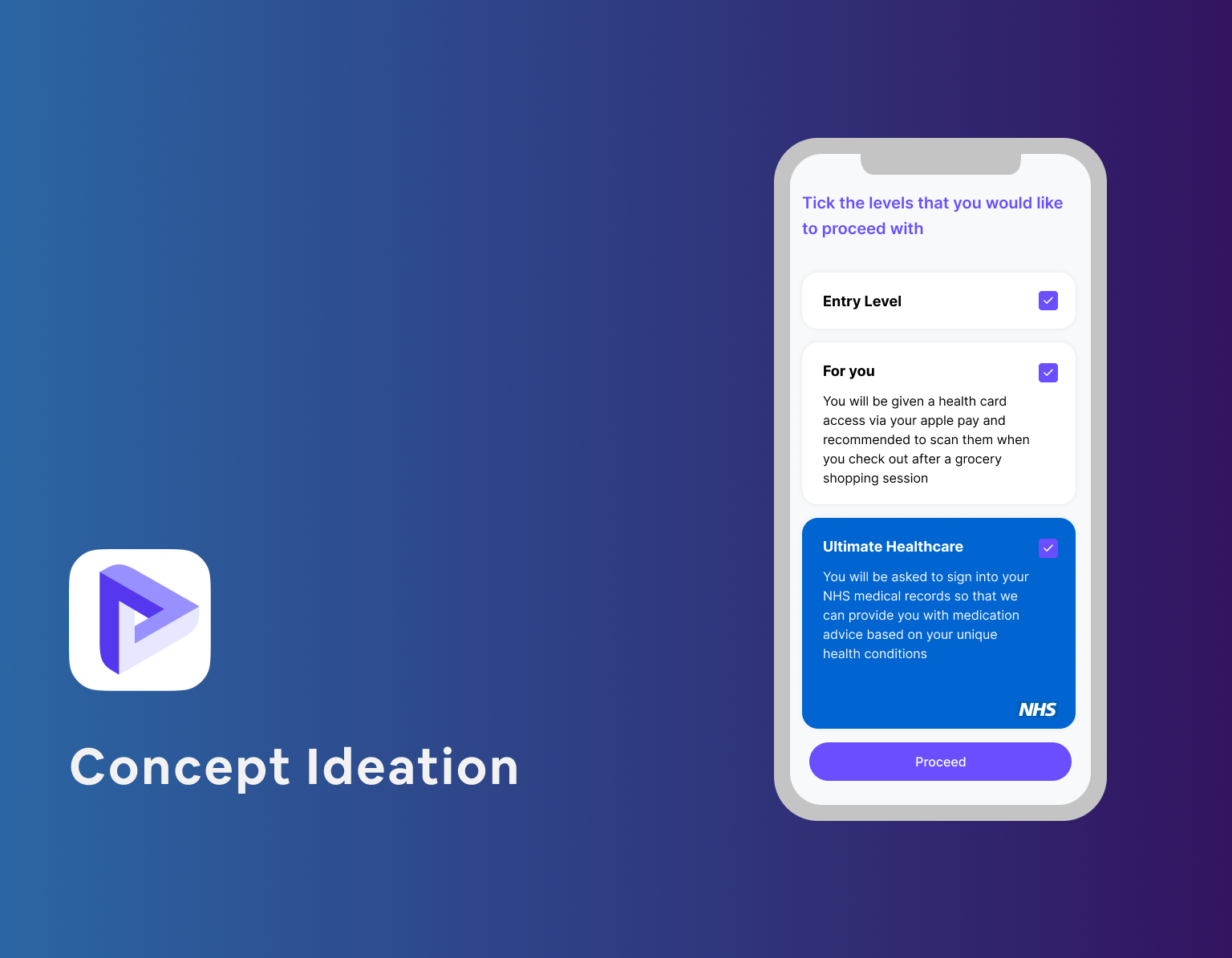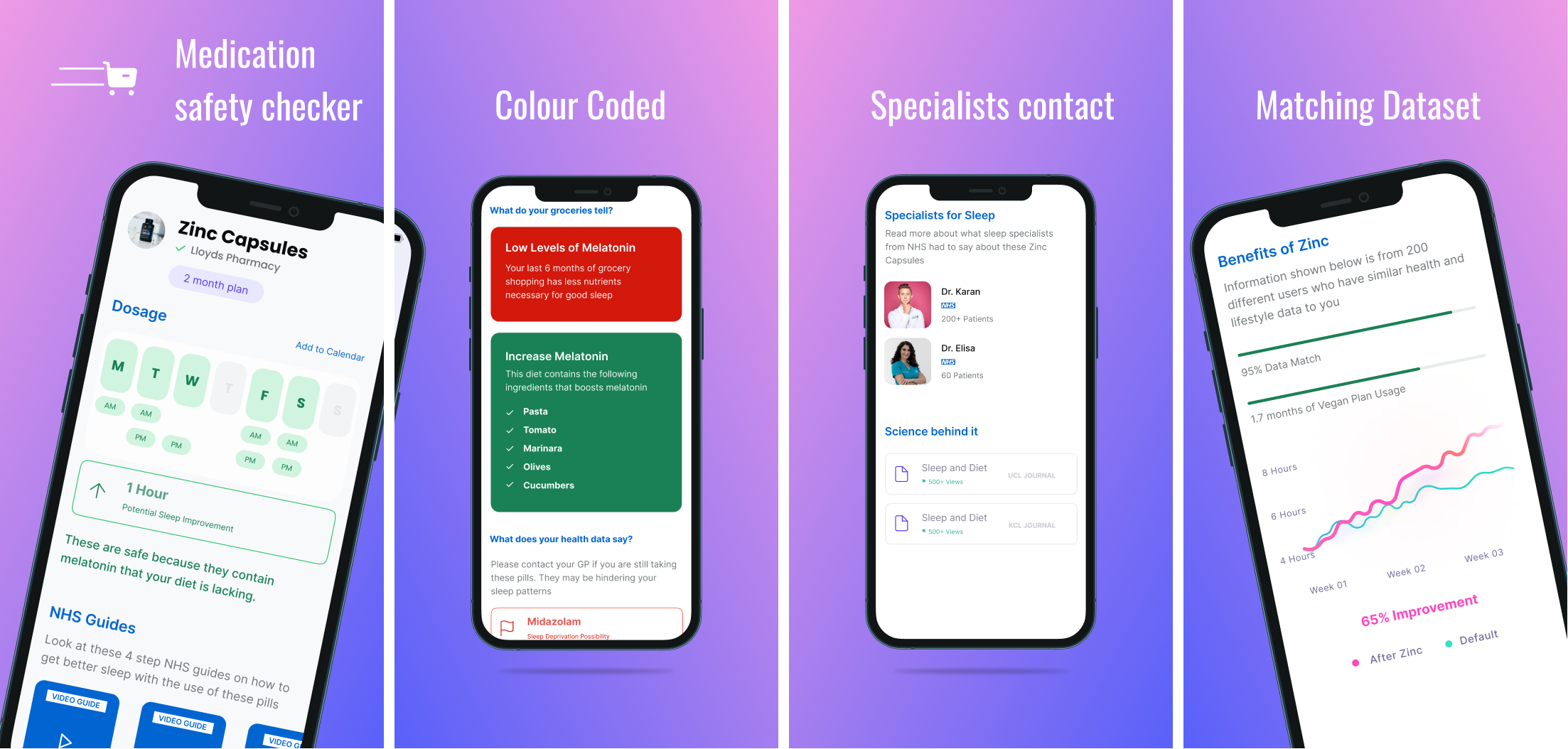Major project
Demed - Personalised Health Recommendations [Read more]

Demed is a decentralized health recommendation platform for young people to improve their life
Demed redefines the concept of health for online-first information seekers with an omnichannel product approach that is user-centred and integrated with health care providers that use user data to provide personalised plans in terms of medication, diet and fitness plans

What is the problem?
Young people have started to look for health improvements in the form of dietary plans and medications to improve their health and wellbeing with an online-first approach. They see these improvements through the bloated world of the internet just like other forms of news and are following advice that is just posted as general information without thinking about possible consequences and unique health conditions.

A qualitative user research that focussed on triangulating different methods to maximise accuracy of results
Methods included
- Verbal Unstrucutred User Interviews
- Online Touchstone tours sessions to understand what users do while they search online and understand their search patterns
- Laddering and Triading Interviews

Key Insights from research findings
The raw data from the research methods were transcribed and uploaded to the Industry standard Optimal workshop tool. The key insights were derived from affinity maps built using optimal workshop's reframer tool.
These insights proved to be data-driven and were confirmed further using secondary research.
There is an opportunity for a service or a product for young adults in stressful conditions looking for answers who don’t want to visit the GP and want to relate with others who share similar concerns but are not having enough time and qualifications to verify the sources of information online

Concept Ideation and Design - Phase I
A tech trend canvas was used to map out future tech trends and explore convergent design spaces for inspiration. The UX vision statement discussed above was the focus of the ideation sessions.
Activities included:
1. Building multiple opportunity statements from insights
2. Exploring trends and technological solutions in convergent space
3. Building Personas, journey maps, user stories and Jobs to be done for product requirements

Concept Ideation and Design - Phase II
With a product plan for solving the user pain points, an idealistic journey map was built to get concept level feedback testing while acting as a co-creation ideation session tool with potential users of the product.
After experience prototyping sessions, necessary changes were made that made the product progress onto the second round of testing with a tangible prototype using Figma
Activities included:
1. Systems Map to identify other key factors
2. Stakeholder relationship map to understand key stakeholders needed for product success
3. Information Architecture Diagram
4. Building a consistent design system
5. Final Visual Design

Final Design and Feature set
Demed is a decentralized nutrition and medication recommendation platform, in collaboration with health providers like the NHS that is curated to young adults who don’t want to spend time waiting for GP appointments but take control of their personal health and self-improvement in their own hands.
It does all this using an intelligent private AI that runs on the ethereum blockchain network to protect user data and making it anonymous but still able to scavenge through it to make meaningful predictions and recommendations to the user. The user receives personalised health information based on their data from grocery shopping, their fitness levels using tracker data and finally, by integrating with the NHS, their medical history.
Demed triangulates this information and provides personalised, actionable recommendations in the form of plans that is easy to follow and consume and makes health improvements in a safe manner.
Benhur Senabathi
Experience Designer with a passion for convergent design and looking to build products for the next billion users
Coming from India, I moved to Loughborough for its holistic approach to design education.
My background was in Architecture where I often used a user-centred approach in spatial design without knowing what UX was. I found UX through the passion I had for software development and cognitive psychology which helped me self-learn through building case studies and doing short internships before my MA.
This course has given me a holistic understanding of design and has strengthened my interests in convergent design as an Experience Designer. I am looking forward to working in products that shape the next decade with technologically disruptive industries and innovating while keeping a user-centred approach.
Major project
Demed - Personalised Health Recommendations
Awards
Best Concept Award for Loughborough University x HKU Business School UXathon 2020